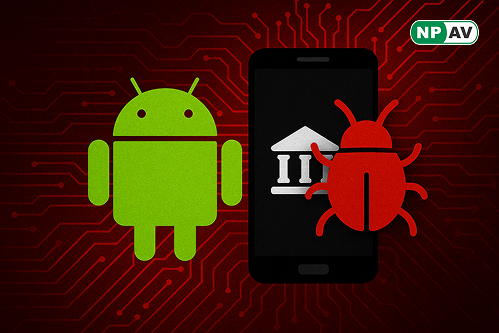Android Security
-
Read moreDiscover PhantomCard, a sophisticated NFC-based Trojan targeting banking customers in Brazil. Learn how this malware exploits NFC relay attacks to steal sensitive card data and facilitate unauthorized transactions.
-
Read moreA new Android phishing campaign is deceiving Indian users by posing as the PM Surya Ghar: Muft Bijli Yojana. Learn how attackers exploit this scheme to install malware and steal sensitive banking information.
-
Read moreDiscover how the PlayPraetor Android Trojan has infected over 11,000 devices through fake Google Play pages and Meta Ads. Learn about its functionalities and impact on users.
-
Read moreAnubis ransomware, first detected in November 2024, targets both Android and Windows platforms, utilizing a ransomware-as-a-service model. Learn about its tactics, high-profile attacks, and how to defend against this emerging threat.
-
Read moreDiscover GhostSpy, a sophisticated Android Remote Access Trojan (RAT) that silently infiltrates devices, steals sensitive data, and evades detection. Learn how it operates and the real-world impact on user privacy and security.
-
Read moreDiscover the PerfektBlue security threat exposing 350 million vehicles, including Mercedes, Skoda, and Volkswagen, to remote code execution (RCE) attacks via Bluetooth vulnerabilities. Learn how these flaws can be exploited and what it means for vehicle security.
-
Posted: July 11, 2025Views: 87Read moreDiscover the significant rise in Android malware activity in Q2 2025, including a surge in banking trojans and sophisticated spyware threats. Learn about the latest findings from Dr.Web Security Space and how to protect your device.
-
Read moreLearn about SparkKitty, a sophisticated Trojan malware targeting iOS and Android devices to steal personal photos. Discover its distribution methods and the risks it poses, particularly in Southeast Asia and China.
-
Read moreA critical vulnerability in Xiaomi’s interoperability app (CVE-2024-45347) exposes millions of users to unauthorized access. Learn about the flaw, affected versions, and the importance of updating your software.
-
Read moreA new phishing campaign in India exploits wedding invitations to distribute SpyMax RAT malware on Android devices. Learn how to recognize and protect yourself from this sophisticated cyber threat.















